- Hits: 744
Erasmus University Rotterdam students participate in rural health program organized by UMS
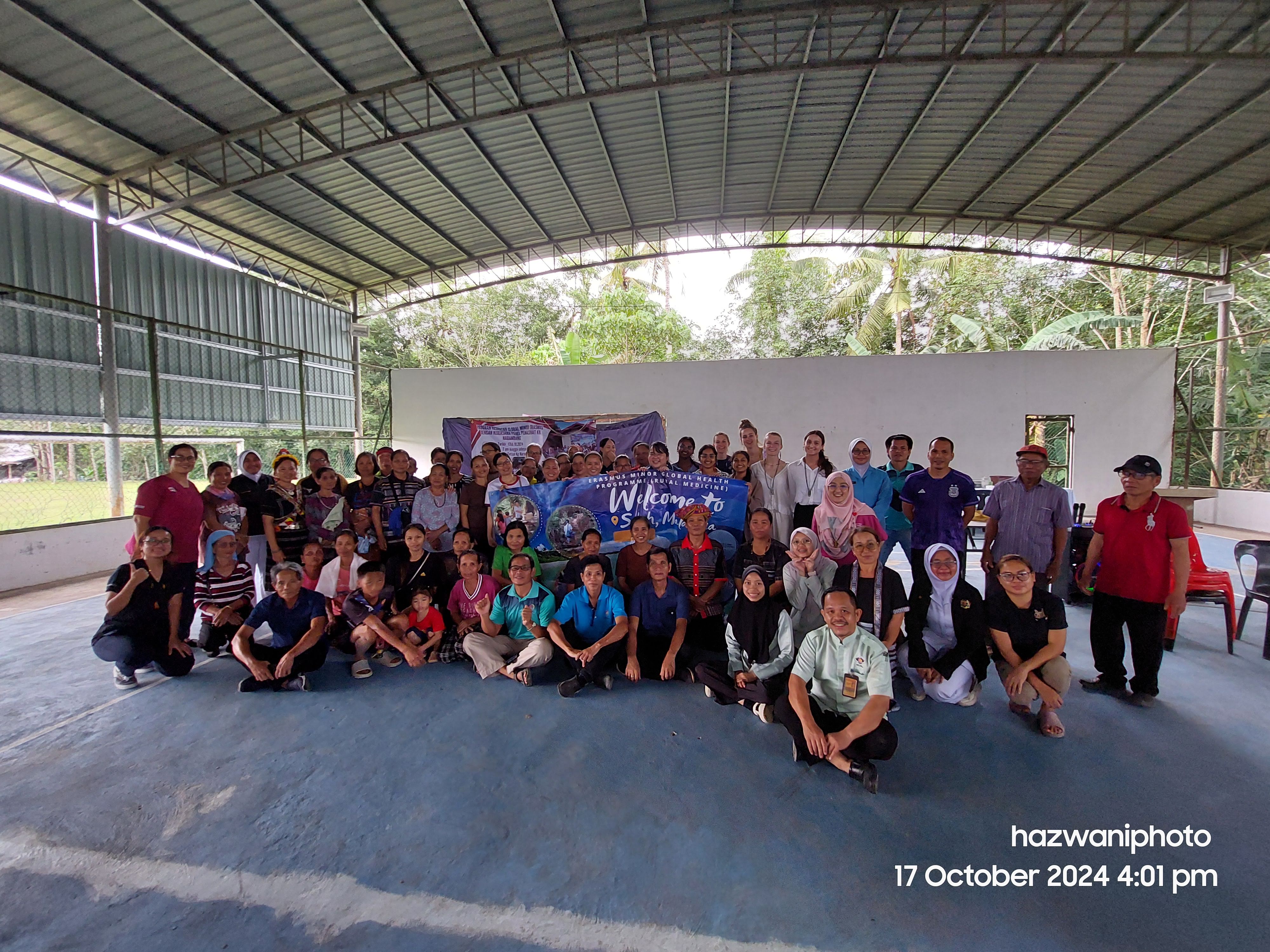 A total of seven medical students from Erasmus University Rotterdam in the Netherlands experienced hands-on learning at rural health clinics in Sabah through the Minor Global Health Program, a collaboration of Universiti Malaysia Sabah (UMS), Erasmus University Rotterdam and University Technology Mara(UiTM).
A total of seven medical students from Erasmus University Rotterdam in the Netherlands experienced hands-on learning at rural health clinics in Sabah through the Minor Global Health Program, a collaboration of Universiti Malaysia Sabah (UMS), Erasmus University Rotterdam and University Technology Mara(UiTM).
The program, managed by the International Unit of the Faculty of Medicine and Health Sciences (FPSK) UMS, ran for seven days and provided students with exposure to various clinical cases in rural areas, as well as home visits to patients.
According to the program coordinator, Dr. Cindy Chin, the program also offered students the opportunity to learn about the culture in Sabah through visits to several interesting places in the region.
“This program allows them to understand the challenges faced by clinics in rural areas around Kudat, such as the lack of equipment for high-risk cases, as well as issues related to transportation and local accessibility.
“Through the home visits and the interview, the students able to experienced first hand the challenges face by the patients, despite of the language barrier. This is only made possible with the great assistance from the rural clinic doctors” she said.
Cindy expressed hope to enhance collaboration with international medical institutions to further develop the Global Health Minor Program at UMS.
“We would like to extend our appreciation to industry partners and medical institutions such as the Kudat District Health Office, Matunggong Health Clinic, and Narandang Health Clinic for their support in making this program successful.
“We at the International Unit of FPSK UMS also value the continuous support from the university and are committed to conducting similar programs to prepare medical students to become future-proof graduates,” she said.
In addition to their time in Sabah, the Erasmus University Rotterdam students also participated in activities at UiTM Shah Alam.



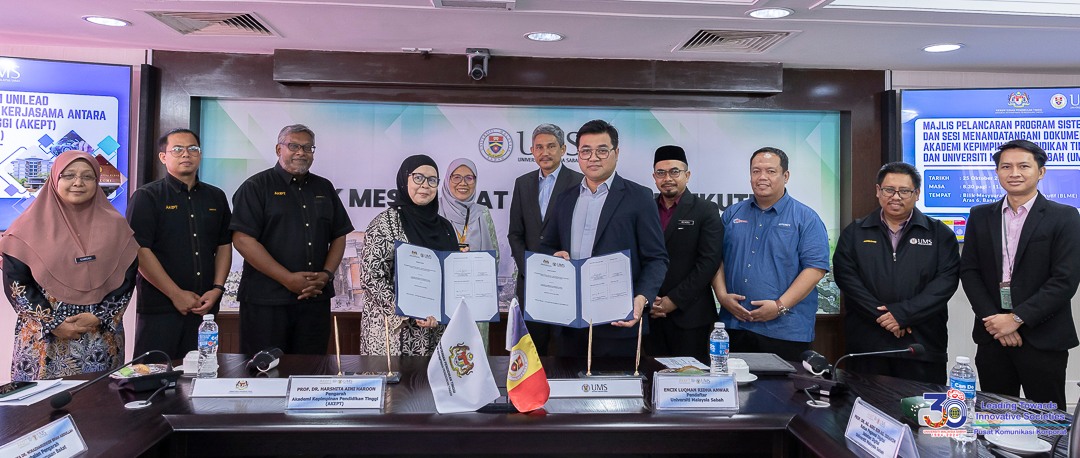 The Higher Education Leadership Academy (AKEPT) and Universiti Malaysia Sabah (UMS) have recently signed a collaboration agreement for a project aimed at improving the University Leadership Directory (UniLead) system.
The Higher Education Leadership Academy (AKEPT) and Universiti Malaysia Sabah (UMS) have recently signed a collaboration agreement for a project aimed at improving the University Leadership Directory (UniLead) system.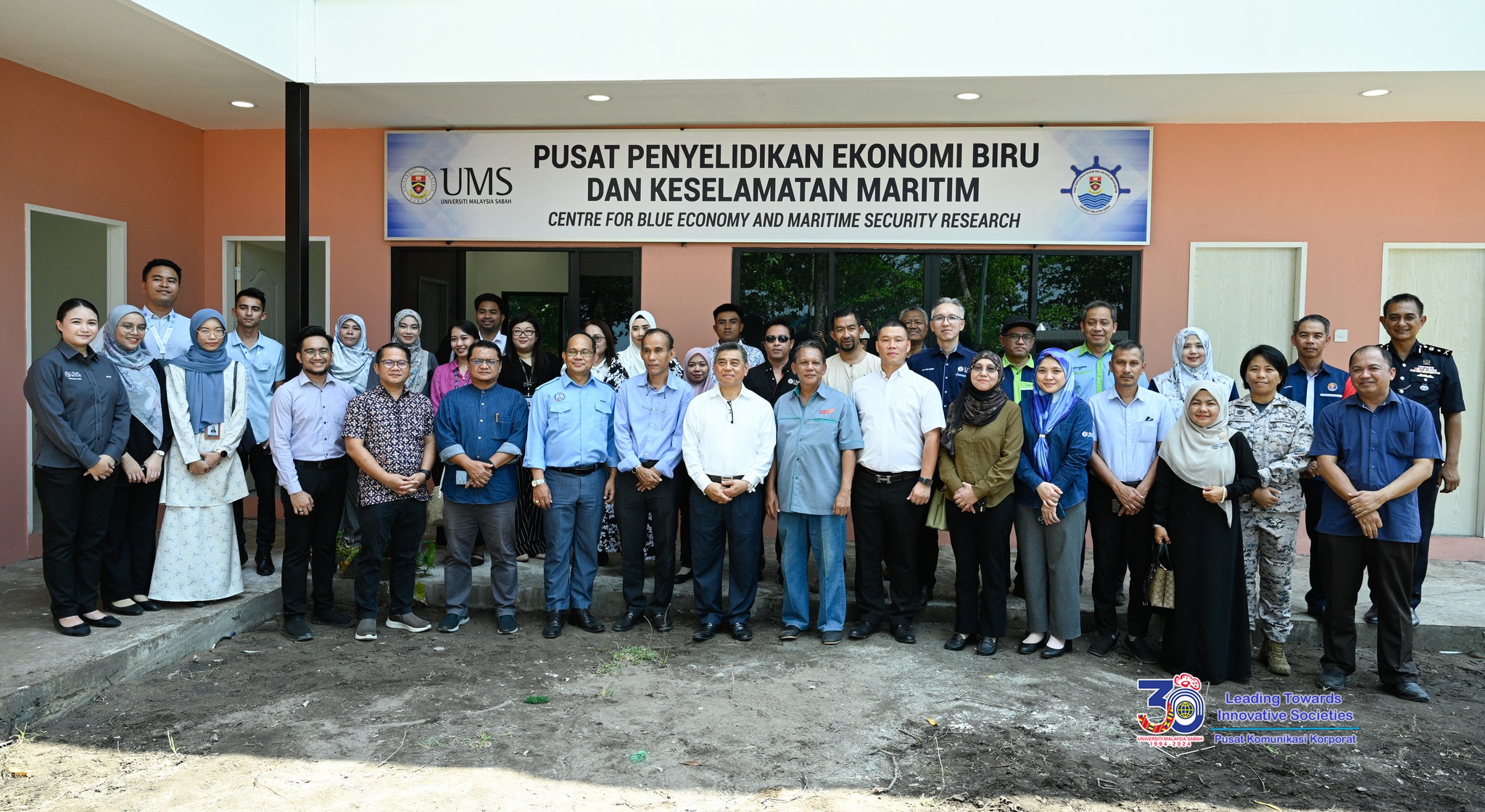 A comprehensive study on the seas surrounding Sabah is set to be the main focus of the newly established Centre for Blue Economy and Maritime Security Research (PPEBKM).
A comprehensive study on the seas surrounding Sabah is set to be the main focus of the newly established Centre for Blue Economy and Maritime Security Research (PPEBKM).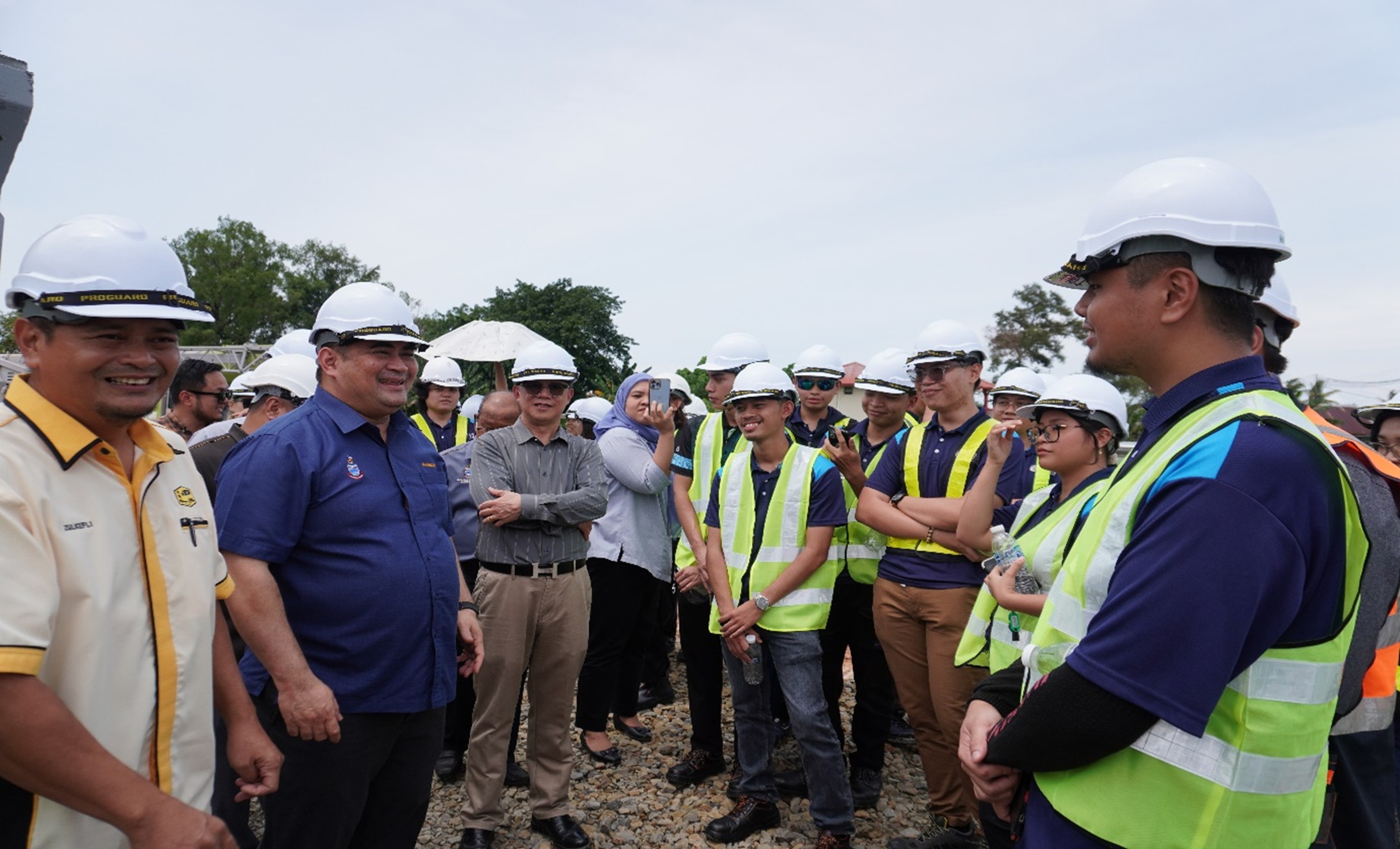 The 'On-Site Learning' activity was carried out by second-year students from the Civil Engineering program, Faculty of Engineering (FKJ) Universiti Malaysia Sabah (UMS), which took place at Kampung Padang Tengah, Petagas, recently.
The 'On-Site Learning' activity was carried out by second-year students from the Civil Engineering program, Faculty of Engineering (FKJ) Universiti Malaysia Sabah (UMS), which took place at Kampung Padang Tengah, Petagas, recently.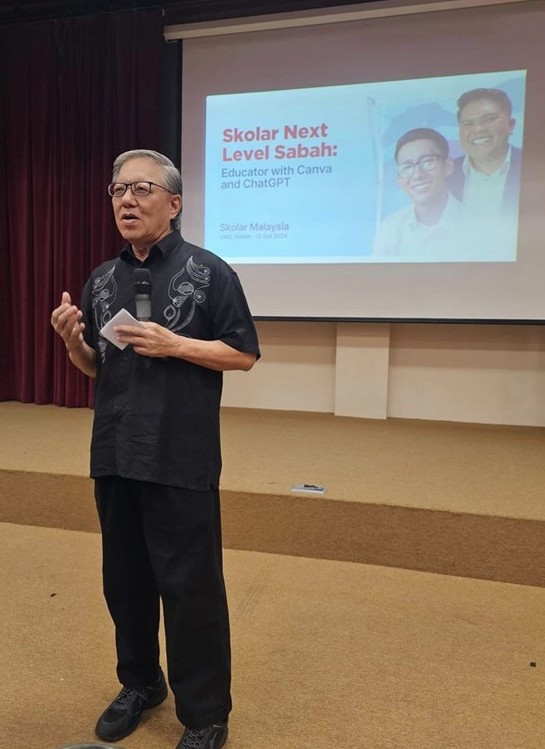 The Skolar Next Level: Educators with Canva and ChatGPT (SNL) program, organized by Skolar Malaysia in collaboration with Center For e-Learning (PEP) Universiti Malaysia Sabah (UMS) and Sawit Kinabalu Group, aims to expose educators to the use of Generative AI technology and Canva in teaching and learning.
The Skolar Next Level: Educators with Canva and ChatGPT (SNL) program, organized by Skolar Malaysia in collaboration with Center For e-Learning (PEP) Universiti Malaysia Sabah (UMS) and Sawit Kinabalu Group, aims to expose educators to the use of Generative AI technology and Canva in teaching and learning.